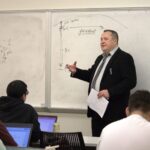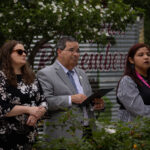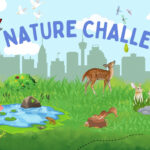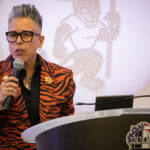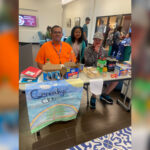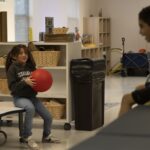Students who actively take notes in class may take for granted how easy it is to type, or put pen to paper. But it’s not easy for all students, including students with disabilities.
The university’s Disability Support Services, located in Room 210 in Central Academic Building, now offers students a digital note taking service, Note Taking Express, rather than peer note takers as the department offered in years past.
“DSS is excited to be able to offer solutions to barriers through technology,” said Sarah Ramseur, director of Disability Support Services.
“The goal of Note Taking Express service is to “provide independence, consistency and flexibility for students who require note taking services for equal access to the learning environment,” Ramseur said.
Costs are covered by DSS, Liz Chavez, case manager and student services coordinator for DSS said.
The transition away from volunteer peer note takers to the Note Taking Express occurred this past summer.
Here’s how the process works:
Students upload recorded lectures and any course-related work to their Note Taking Express account. The service compiles key points, rather than directly transcribing audio files, and uploads the notes directly to the student’s account within 48 hours.
Notetaking Express hires note-takers who are responsible for downloading and listening to the recordings to produce clear, thorough, typed notes by the specified deadline/turnaround time, according to the company’s website.
Notes are created on Microsoft Word and then submitted. The service condenses the files into the main and most important points.
But, students must qualify for services first.
In order to qualify for the usage of the Note Taking Express, DSS requires students to apply for services, attend an intake meeting and submit supporting documentation of a disability. Once an application is complete, a Disability Support Services committee meets to review the application.
The department notifies students when accommodations are approved. At this time, Note Taking Express accounts are created. The student then receives a welcome email from Note Taking Express with login information and instructions for use.
Note Taking Express offers instructions to guide students through the process.
The advantages? Students stay in control of their notes. Hired note takers sitting in the classroom are no longer required, Ramseur said.
The downfalls? “Not every student feels comfortable with someone writing their notes unless they know them,” Ramseur said.
Another issue was scheduling. “There may be times where the note-taker is absent for class and that jeopardizes the student with the notes they may need,” Ramseur said
Richard Allegra, director of professional development for the Association on Higher Education and Disability, said he does not have any direct experience with note-taking technology, but offered additional resources for those interested, including the University of Arizona’s Disability Resource Center.
“I doubt if anyone has yet researched the effectiveness of commercial note taking vs peer to peer note taking, since it’s so new,” Allegra said in a Nov. 12 email.
This news outlet approached DSS for access to student viewpoints on the services, but Ramseur said that students who use the notetaking service at this university declined to be interviewed for this article.
But, staff members like Ramseur around the country are putting considerable thought and energy into how to use technology to improve services.
“…there is definitely a movement to re-think how note taking has been done,” said Dr. Wendy Harbour, Executive Associate Director Association on Higher Education And Disability (AHEAD) via email.
Many universities, she said, are going toward a universal design method.
“Universal design in pedagogy is the philosophy that curricula, learning, teaching, and assessments should be designed for the maximum diversity of students, including those with disabilities,” she said. “While some students will always need notes, universal design helps professors consider whether there might be other ways to ‘do’ notes. Examples would be professors sharing notes and PowerPoint slides, videotaping classes and making them available later, or having students take turns doing notes so there are two or more sets of notes from every class…for ALL the students,” Harbour said.
The shift to note-taking technology at A&M-San Antonio, Ramseur said, has been smooth.
“It has been successful so far, there haven’t been any technical issues,” she said.
In order to promote the services, the Disability Support Services’ faculty and staff offer information during New Student Orientation.
“Our hope is that DSS registered students will embrace the technology and fully participate in all that A&M-SA has to offer,” said Ramseur.
The department works closely with the Welcome Center. When students receive a welcome packet, the service information is included in the packet.
Disability Support Services are active with many events on campus such as advisor fair, info sessions, convocation meetings and have connections with military affairs.
“We want them to know we are here,” Ramseur said.
“Our hope is that DSS registered students will embrace the technology and fully participate in all that A&M-SA has to offer. We want our students to be successful…in order to reach their goals and graduate,” Ramseur said.

